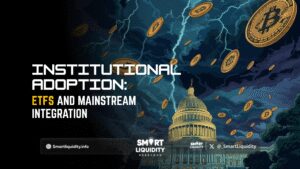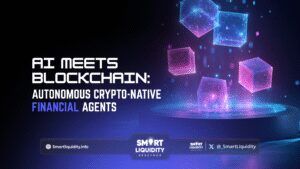The Future of Data Ownership: Understanding Data Tokenization


In today’s digital realm, data has emerged as the new currency, yet its ownership remains largely obscured. Enter data tokenization, a revolutionary concept reshaping the landscape of data ownership. This article dives into the transformative potential of data tokenization, exploring its power to empower individuals, foster fair compensation, create new markets, and navigate the delicate balance between innovation and user protection.
Data Tokenization Empowers Individual Data Ownership
Data tokenization emerges as a groundbreaking force in the realm of individual data ownership, fundamentally altering the dynamics of the digital landscape. By harnessing the capabilities of blockchain technology, data tokenization empowers individuals to assert control over their digital identities. Each piece of personal information is converted into a unique token, cryptographically secured and stored on a decentralized ledger. This transformative process ensures a transparent and immutable record of ownership, offering a stark departure from the prevailing opacity surrounding data utilization.
With the ability to track and manage their data through these tokens, users gain unprecedented sovereignty, enabling them to grant or revoke access as they see fit. In essence, data tokenization catalyzes a paradigm shift, placing the power of data back into the hands of its creators, fostering a future where individuals navigate the digital landscape as active custodians of their own information.
Tokenizing Data for Fairer Compensation in the Digital Age
In an era where data serves as the currency of the digital realm, data tokenization emerges as a catalyst for fair compensation in an otherwise skewed landscape. Traditional models often exploit user-generated data without commensurate returns to its creators. However, the advent of data tokenization introduces a transformative shift by assigning tangible value to individual data tokens. This paradigm allows users to actively participate in a more equitable data economy, where the contributions of their data directly translate into compensatory rewards. By quantifying the value of each data token based on its attributes and usage, this approach ensures that users receive fair remuneration proportional to the data they contribute, fundamentally reshaping the dynamics of digital transactions.
The concept of tokenizing data for fair compensation not only recalibrates the power balance between users and data aggregators but also instigates a paradigm where data becomes a tradable asset. With tokens representing specific data attributes, users enter a realm where their personal information garners a measurable value. This evolution in the data economy fosters a system where individuals are not mere generators of data but active participants, capable of negotiating their worth in the digital marketplace. Through data tokenization, the landscape shifts from passive data exploitation to an ecosystem that acknowledges and rewards the intrinsic value of user-generated data, heralding a fairer and more ethical era in the digital age.
How Data Tokenization Creates New Markets and Opportunities
Data tokenization stands poised as a transformative force reshaping industries and creating fertile ground for new markets and untapped opportunities. By fragmenting data into tokens secured by blockchain technology, previously inaccessible datasets become available to industries hungry for innovation. This newfound accessibility spurs the emergence of novel applications and solutions across diverse sectors, from healthcare and finance to supply chain management and beyond. With data now granular and tradable, new marketplaces thrive, fostering collaborations and fueling innovations previously hindered by centralized data control.
The essence of data tokenization lies in its capacity to foster collaborations and unlock the latent potential of data sharing. This phenomenon doesn’t merely decentralize data but democratizes access, paving the way for a more inclusive economy. Through tokenized data, enterprises can tap into specific datasets without compromising security or integrity, creating an environment conducive to novel business models and disruptive innovations. This proliferation of opportunities transcends conventional boundaries, seeding an era where data becomes a catalyst for cross-industry collaborations, spawning new markets, and opening vistas for entrepreneurship and invention.
Balancing Innovation with User Protection in the Tokenized Data Landscape
As the landscape of data tokenization continues to evolve, the delicate equilibrium between innovation and user protection emerges as a pivotal concern. While data tokenization fuels groundbreaking advancements by decentralizing control and enhancing accessibility, it concurrently necessitates robust measures to safeguard user privacy and rights. Striking this balance requires a multi-faceted approach, intertwining technological advancements with stringent regulatory frameworks. Encryption, decentralized storage, and smart contract protocols are fundamental components ensuring data integrity and user consent, bolstering innovation while fortifying user protections.
The cornerstone of a sustainable tokenized data landscape lies in proactive governance and ethical considerations. Implementing clear and enforceable regulations harmonizes innovation with user interests, mitigating risks associated with data misuse and breaches. A collaborative effort between tech innovators, policymakers, and privacy advocates is imperative to steer the trajectory of data tokenization. This collaborative synergy ensures that while pushing the boundaries of innovation, the sanctity of user privacy and rights remains sacrosanct, thereby fostering a resilient and trustworthy tokenized data ecosystem.
Empowering Individuals in the Data-Driven World with Data Ownership
Data ownership is undergoing a seismic shift, empowering individuals in an increasingly data-driven world through the paradigm of data tokenization. This transformative concept places the reins of data firmly in the hands of its creators, allowing individuals to reclaim sovereignty over their digital identities. By leveraging blockchain technology to tokenize data, users gain unprecedented control, enabling them to track, manage, and consent to the usage of their information. This empowerment not only fosters a sense of agency but also lays the groundwork for a future where data ownership is a fundamental right, not merely a privilege.
Through data ownership, individuals become active participants rather than passive subjects in the data ecosystem. By engaging in informed decisions about their data, users contribute to a culture of trust and transparency in digital interactions. This shift towards data ownership is not just about control; it’s about enabling individuals to harness the potential of their data, whether for personal benefit, fair compensation, or broader societal impact. Ultimately, data ownership heralds an era where individuals navigate the data-driven landscape with confidence, knowing they hold the keys to their digital identities and shaping a future where privacy and empowerment coexist harmoniously.
| Feature | Description | Benefits | Challenges |
| 🔑 Data Ownership & Control | Enables individuals to own and control their data, granting them the ability to decide how it is used and shared. | – Increased privacy and security – Empowers individuals to monetize their data | – Need for legal frameworks to support data ownership rights. – Potential for data monopolies to emerge. |
| 🔢 Fractional Ownership | Allows individuals to own a piece of a larger data asset, making it accessible to a wider range of investors | – Enables data monetization for individuals with limited data sets. – Facilitates collaboration and sharing of data. | – Challenges in valuing and trading fractional data assets. – Need for robust governance mechanisms. |
| 👨💻 Personalized Experiences | Enables businesses to create personalized experiences for users based on their data preferences | – Increased customer engagement and satisfaction – Improved marketing and advertising effectiveness. | – Concerns about data privacy and potential for discrimination. – Need for ethical data practices. |
| 🔐 Secure Data Sharing | Enables individuals to share their data securely with trusted parties, such as researchers or healthcare providers. | – Facilitates medical research and innovation. – Improves access to healthcare services. | – Need for secure data sharing protocols and platforms. – Potential for data breaches and misuse. |
| 📊 Data Marketplaces | Creates a marketplace where individuals and businesses can buy and sell data assets. | – Increases data liquidity and access. – Enables new data-driven business models. | – Potential for data manipulation and fraud. – Need for regulatory oversight of data marketplaces. |
Conclusion
Data tokenization stands as a transformative force, reshaping the paradigm of data ownership. Its capacity to empower individuals, ensure fair compensation, stimulate new markets, and navigate the fine line between innovation and protection holds promise for a future where data ownership is not a privilege but a fundamental aspect of digital citizenship. As this technology evolves, balancing innovation with user protection will remain key to unlocking its full potential and reshaping the dynamics of the digital world.




